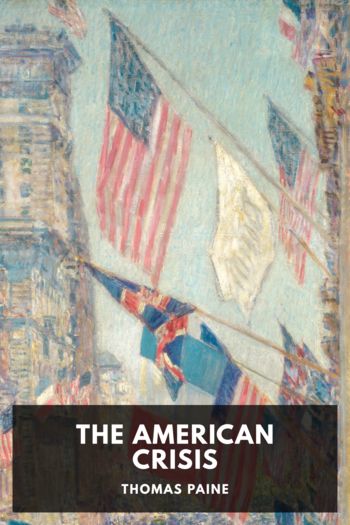Short Fiction, Vladimir Korolenko [finding audrey TXT] 📗

- Author: Vladimir Korolenko
Book online «Short Fiction, Vladimir Korolenko [finding audrey TXT] 📗». Author Vladimir Korolenko
The boy laughed merrily while he listened to these descriptions, and for a time forgot his painful efforts to understand his mother’s words. Yet her stories possessed a greater charm for him, and he preferred to question her rather than Uncle Maxim.
II The Sources of Musical Feeling—The Blind Boy and the Melody IThus the dark mind of the child was gradually enriched by new images. By means of his abnormally keen sense of hearing he was enabled to penetrate deeper and deeper into the secrets of Nature. The dense, impenetrable gloom that veiled his brain like a heavy cloud still enfolded him, and although he had felt this from his birth, and one might suppose that he would have become accustomed to his misfortune, yet such was the temperament of the child that he instinctively strove to free himself from this dark curtain. His perpetual though unconscious efforts to gain that light of which he knew not, had left upon his face the impress of his vague and painful struggle.
Yet the blind boy enjoyed moments of quiet satisfaction, even of childish delight, which came to him whenever he received a keen sensation from certain outward impressions, revealing unfamiliar manifestations of the unseen world. Nature in all her grandeur and power was not wholly inaccessible to him. Once, for instance, when he was led to a high cliff above the river, he listened with a peculiar expression to the faraway splashing of the water below, and when he heard the stones slipping from beneath his feet he seized his mother’s dress and held his breath in fear. From that time depth was represented to him by the gentle murmuring of water at the foot of a cliff, or by the startling sound of stones falling.
A remote and indistinct song conveyed to the mind of the boy the idea of distance; but when during a storm in the springtime the pealing thunder rang out, filling all the air with its reverberations and angry mutterings, gradually dying away amid the clouds, he listened with awe, his heart swelling with emotion, and in his mind arose a grand conception of the magnitude of the firmament. Thus sound embodied for the child the immediate expression of the outside world; all other impressions were merely supplementary to that of hearing, by whose aid his ideas took form as if poured into a mould.
Sometimes during the heat of noonday, when all around was quiet, when human life seemed at a standstill, and Nature had lapsed into that peculiar repose beneath which the noiseless current of life is felt rather than seen, the face of the blind boy likewise assumed an expression peculiar to himself. He seemed like one absorbed in listening to sounds inaudible to all the world beside—sounds issuing from the depths of his own soul, impelled to utterance by the universal calm. One who observed him at such moments might fancy that his vague thoughts had found an echo in his heart, like the uncertain melody of a song.
IIThe blind boy was already five years old. Slender and frail he was, it is true, but still he could walk and even run with ease and freedom around the house. No stranger on seeing him walk with such entire confidence from room to room, always turning at the right place and finding what he sought, would for one moment have suspected that the boy was blind; he would simply have been taken for a child intensely in earnest, ever with a faraway look in his eyes. But in the yard he moved with less confidence, feeling his way by the aid of his cane. If it so chanced that he had no cane in his hand, he chose rather to creep upon the ground, passing his hands rapidly over every object that came in his way.
IIIIt was a calm summer evening. Uncle Maxim was sitting in the garden. The father as usual was occupied in some distant field. Everything was quiet in the yard and around the house; the hamlet was to all appearances going to sleep, and the hum of the servants’ and workmen’s voices had likewise ceased.
The boy had already been in bed for half an hour. He lay between sleeping and waking. For a certain length of time this peaceful hour had seemed to arouse strange memories within him. Of course he could see neither the dusky blue sky, nor the dark waving treetops, outlined sharp and clear against the starry heavens, nor the frowning peaks of the courtyard buildings, nor the blue haze overspreading the ground, mingling with the pale golden light of the moon and the stars. For several days he had fallen asleep under the charm of a spell of which he could render no account the following day. When drowsiness had benumbed his senses, when he could no longer hear the rustle of the beech-trees, or the distant barking of the village dogs, or the voice of the nightingale beyond the river, or the melancholy tinkling of the bells attached to the colt browsing in the neighboring field—when all these varied sounds grew faint and indistinct, it seemed to the blind boy that they were all merged in one harmonious melody, which made its way quietly into the room, and hovering over his bed brought in its train vague but enticing dreams. The next morning when he woke he still felt their influence, and asked his mother: “What was that—yesterday? What was it?”
The mother did not know what her child meant; she thought he was probably





Comments (0)